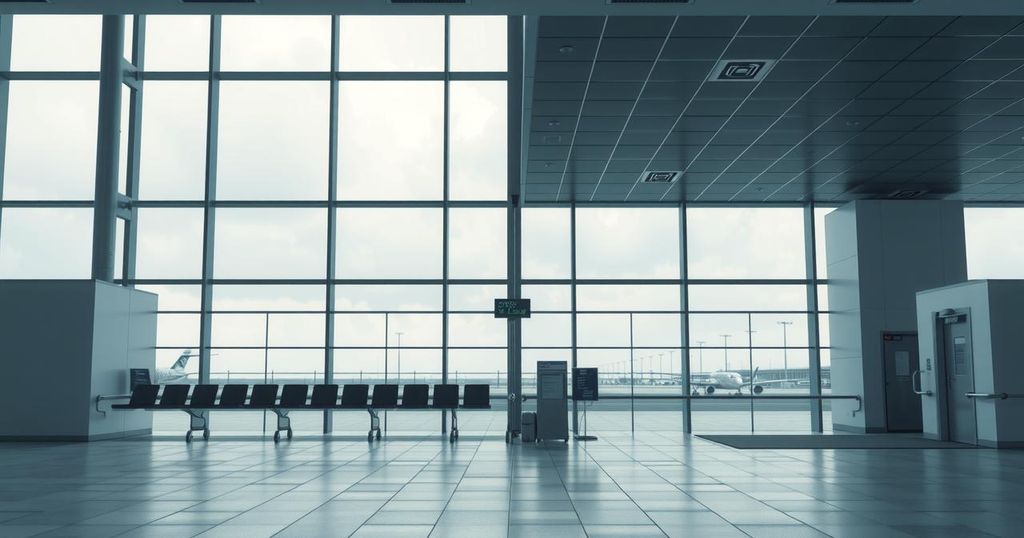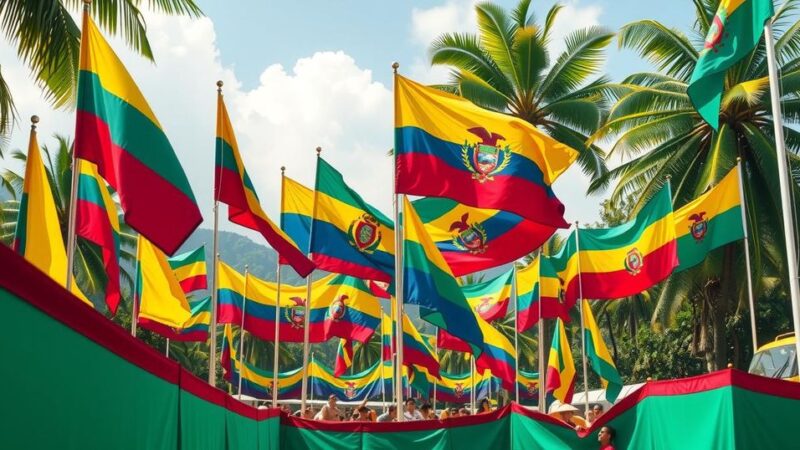Senator Edwin Sifuna and six others were denied entry into Angola while attempting to engage with UNITA, the main opposition party. Their expected arrival was arranged by UNITA’s President, yet upon landing, they faced restrictions from Angolan authorities despite prior assurances from UNITA regarding their stay. This event reflects the persistent difficulties faced by opposition within Angola.
In a significant development, Nairobi Senator Edwin Sifuna is among seven individuals denied entry into Angola. This group included politicians and activists from various nations, including Uganda, Kenya, Ukraine, and Ethiopia, who were scheduled to arrive at Luanda’s 4 de Fevereiro International Airport on March 13. Their visit was arranged by Adalberto Costa Júnior, the President of UNITA, Angola’s leading opposition party.
Upon their arrival, the Angolan authorities prevented them from entering the country. Senator Sifuna expressed his discontent on the social media platform X, writing, “UNITA President Adalberto Costa invited us to Angola. The government has denied us entry!” He further provided a letter indicating that a formal request for border visas had been submitted to Angola’s Migration and Foreign Services by UNITA’s presidential office.
The letter, signed by Chief of Staff Lucas Tomás Nhanyula, guaranteed that UNITA would assume full responsibility for the guests during their stay. It explicitly stated, “They will enter the country tomorrow, March 13, 2025, at the 4 de Fevereiro International Airport. The Office of the President of UNITA declares responsibility for their stay in Angola.”
Other notable individuals included in this group are Sharif Ssenyonjo Najja and Robert Ssentamu Kyagulanyi from Uganda, Cirino Hiteng Ofuho from Kenya, and Oleksandr Omelchuk and Andriy Marasin from Ukraine, along with Merera Gudina Jefi. Historically, UNITA was established in 1966 by Jonas Savimbi to advocate for independence from Portuguese colonial rule and later played a key role in Angola’s civil war against the MPLA.
Following the end of the civil war in 2002 and Savimbi’s death, UNITA transitioned into a significant political entity, continuing to advocate for critical changes within Angola, including democratic reforms and economic development.
In conclusion, Senator Edwin Sifuna and six other activists faced entry denial into Angola despite a formal invitation from UNITA’s leadership. Their efforts to establish political dialogue highlight the ongoing complexities within Angola’s political landscape. This incident underscores the challenges faced by opposition voices in the country and points to UNITA’s historical significance in Angola’s political framework and ongoing struggles for democracy.
Original Source: nairobileo.co.ke






